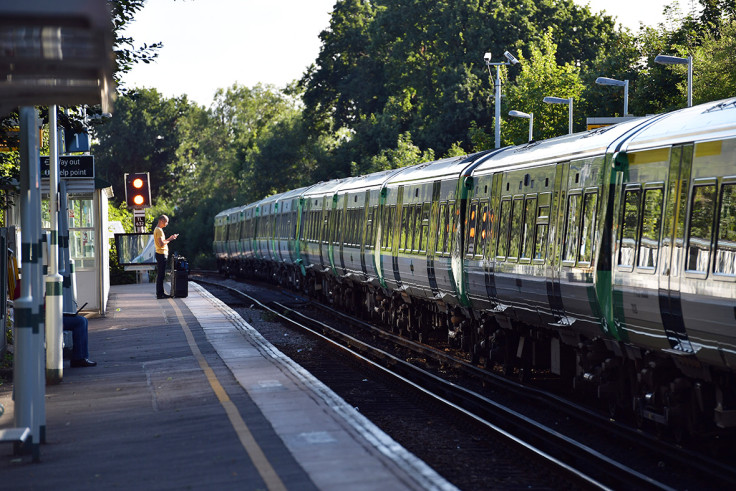Government is clinging to a failed rail model - and we're forced to pay the price
The success of East Coast Mainline demonstrated a clear alternative to dysfunctional privatisation.

Rail fares have risen by over a quarter since the Conservatives came to power in 2010, more than twice as fast as wage growth, forcing people to pay thousands of pounds more to commute to work. Britain is already the most expensive country in Europe travel by train, yet today commuters were told that regulated fares would rise by a further 1.9% in 2017.
Regulated fares account for around half of all UK train journeys and include saver returns, standard returns, off-peak tickets and season tickets on most commuter journeys. For those suffering from the overcrowded carriages and unreliable services that increasingly characterise our network, this latest price hike is a slap in the face.
Rail passengers are paying more and getting less. Fares go up while trains remain overcrowded, stations are unstaffed, and rail companies cut the guards who ensure journeys run smoothly and safely. The privatisation of British Rail was supposed to deliver cheaper fares and better customer service. Twenty years on, the opposite is the case.
Fares on the most popular routes have jumped by 245%, and rail fares aren't just expensive – they're confusing too, often leaving passengers overpaying for their journey and struggling to claim refunds they are entitled to.
Not only do fares rise year after year, an overly complex ticketing system means that cheaper tickets are routinely 'hidden' from customers who purchase by machine or online, leaving millions over-paying for their journeys. Claims from government ministers that passengers are paying "fair fares for comfortable commuting" are a far cry from the lived experience of passengers who seldom feel that fares are fair or commutes comfortable.
The network of private and foreign state-owned companies who operate passenger services on Britain's railways come together in a jumbled network that drives up the cost of improvement works, complicates ticketing structures and extracts eye-watering profits that could instead go on improvements or keeping fares down from the system. The hit to the pockets of commuters stands in stark contrast to the £222m in dividends paid to shareholders of private train companies in the last year – an increase of 21%.
The success of East Coast Mainline demonstrates a clear alternative to the dysfunctional model of privatisation. East Coast Mainline, placed in state ownership after private operator National Express walked away from the contract, delivered over £1bn to the Treasury, kept fares down, had record passenger satisfaction and engaged the workforce with unparalleled success before the line was re-privatised in May 2015. The example of East Coast, as with the ongoing Southern Rail debacle, shows a government clinging to a failed model for purely ideological reasons – and it is commuters who are being made to pay the price.
Our trains should run for the benefit of passengers and the taxpayer rather than private or foreign state-owned companies, as is presently the case. Labour have been clear that we will put an end to Britain's rip-off railways, bringing rail back to public ownership, with routes returning to public ownership as private contracts expire, meaning profits can be re-invested to improve services and hold fares down. Passengers, not profit, should be at the heart of Britain's railway.
Andy McDonald is Labour MP for the Middlesbrough constituency and Shadow Secretary of State for Transport
© Copyright IBTimes 2025. All rights reserved.






















